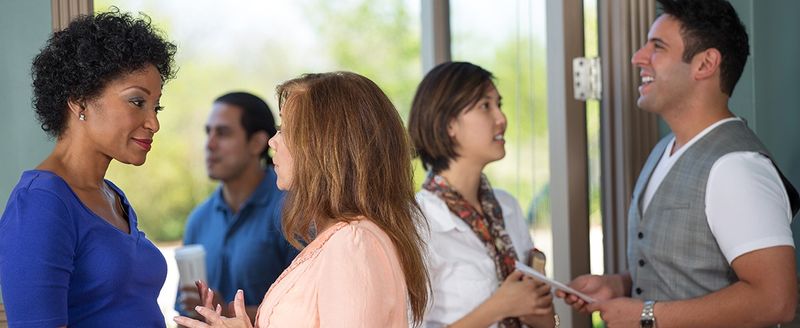A couple of weeks ago, my pastor challenged the congregation with a weighty thought: our eagerness to reopen our church should not be self-centered. These words lingered in my mind long after the sermon was over. What would be a self-centered reason to reopen? A desire to claim our right to return to church? A simple wish to be in the company of other Christians? And what would be instead the right motivation?
Similar thoughts have occupied the minds of many Christians over these weeks of lockdown. I have interviewed a few to compare their opinions.
Joy and Apprehension
For many Christians the news of the reopening of their churches has been met with great joy, even if tinged with a touch of apprehension. Most have felt confident that their churches will reopen safely, following the appropriate guidelines. Some still fear that other churches might be less careful, causing more illness and possibly tougher restrictions. For many, the apprehension has to do with the tension and division they have experienced on social media and in discussions with others.
“I acknowledge that, as our pastor said, it is during these times of waiting the Lord grows us and sanctifies us,” Nicol, a member of a Reformed Church in Phoenix, AZ, told me. “Here’s where I struggle: our pastor said these times of little waiting (months as opposed to years, in our homes as opposed to places of suffering) are irksome to us. For me, irksome doesn’t describe how I feel, it is sadness and concern. I could be alone here, it’s possible I am entirely overthinking or over feeling this thing. Is this changing the way we feel about each other and about the church gathered, the way we think of our future, how we balance personal freedom and responsibility with loving our neighbor? Are we being dismembered as a people, as a church?”
Jessica Roberson, member of Whites Run Baptist Church in Carrollton, KY, shared similar concerns. “I feel many are looking at our brothers and sisters in Christ as threats to either personal freedom or personal health rather than men and women not only made in the image of God but redeemed in Christ. If social media is any reflection of what will happen in local churches, it may be a trying time for some congregations.”
But a few days after Jessica wrote these words, her church reopened without major problems (just a little frustration over wearing masks), and she is now encouraged that unity in Christ can still be maintained, in spite of different socio-political or scientific views of the current situation.
For some people, the fact that some will not attend worship, for a variety of reasons, is a matter of concern. “I am most worried about the shut-ins in our churches,” said Kyle Lee, member of a Reformed church in Washington D.C. “It will be quite a while until we see them back in worship as counties begin phased re-openings. I also fear that realizing how much access we have to technology might set a precedent for a ‘virtual’ church. Imagine if we treated family like that, virtually.”
Lessons from Lockdown
In spite of these and other apprehensions, most people I interviewed had positive things to say about their time in lockdown. They have learned to adapt to this new situation and have learned a host of valuable lessons, ranging from practical (such as better time-management and new technological skills) to spiritual and emotional.
Some have cherished the time spent alone, filling their lives with books, music, art, and interesting hobbies. Others have discovered creative ways to help people in need. Some have appreciated the extra time with their families, while others have awkwardly learned to face the challenges of homeschooling.
In fact, not everyone wants things to return to be exactly what they were before. Catherine, a member of a Presbyterian church in Scotland, hopes that some things in her life will continue to be different, such as “taking life more slowly, not going to shops so much.”
In her church, the lockdown has highlighted some concerns that had gone unnoticed before the lockdown. “Our congregation realized that at least twenty individuals didn’t have email addresses, but we only realized that after Covid. We need to be aware of people in our congregations and communities who are on their own. We need to be aware of those who are technologically isolated. Isolation and loneliness did not just suddenly materialize in the last eight weeks – single people and the elderly struggle with or without this lockdown. We need to be more involved with the community as a congregation, really be there for people as they try to navigate the new world after Covid.”
And this situation can make us more aware of others in the future, Jessica adds, recognizing “that we can help high-risk people during flu season by taking some precautions that many have been doing now: washing or sanitizing hands more frequently, staying away when we are sick, modified social distancing when there are outbreaks in our communities, etc.”
She also hopes we will learn from the mistakes some of us have made by expressing our views too strongly on social media. “I hope the saints will take into consideration how our actions and words can affect others. And it’s not just words we say but words we type. People can see comments and likes online, and we need to stop justifying liking and commenting on posts that are harsh, condescending, and downright cruel.”
As we continue to care for others, Laura Baxter, member of the Bridge Church in Ruston, LA, cautions us not to equate safety with isolation. “When we isolate the elderly to protect their personal safety, we also dramatically decrease the quality and meaning of their lives. I personally know nursing home residents who are suffering terribly due to COVID ‘protections.’” She challenges Christians to consider how they can be “gentle and considerate but also courageous. I hope we can balance priorities better during the next crisis.”
Other lessons learned by Christians at this time include a deeper understanding of God’s sovereignty and human frailty. “Life is more delicate than we think it is and we had better walk with humility before the God who rules over the immeasurable force of the natural world,” said Ed Lacorte, member of Resurrection Presbyterian Church in San Diego, CA.
Finally, one important lesson some of us have learned is that we have been taking worship for granted. “There are times when fellowship is a burden, and being in community with other sinners is messy,” Brian Gross, elder at PCA church in Birmingham, Alabama, confessed. “But absence makes the heart grow fonder.”
Even children have a renewed appreciation for the weekly church services. “Sometimes I didn’t even want to go to church,” 11-year old Mina Boekestein, of Immanuel Fellowship Church in Kalamazoo, Michigan, told me, “and now I’m so glad we’re back!”
Why Corporate Worship
Most of the people I have interviewed said they have missed corporate singing and weekly fellowship with other Christians. This is understandable, particularly as the world seems to be increasingly alien and hostile. And fellowship, they pointed out, includes accountability and life together as members of the body of Christ. “I never realized how quickly it could all be shut down,” Laura said. “It made me more sympathetic to persecuted brothers and sisters in other countries.”
Many have remembered Hebrews 10:24-25: “And let us consider how to stir up one another to love and good works, not neglecting to meet together, as is the habit of some, but encouraging one another, and all the more as you see the Day drawing near.”
“There is a connection between meeting together and stirring up one another to love and good works and encouraging each other,” Jessica said. “We can certainly provide encouragement in a text, a video chat, etc., and we should be thankful these things exist during this time, but they are not adequate replacements for in-person fellowship.”
But there is more. Corporate worship is more than simple fellowship and an occasion for accountability and encouragement. As important as these things are, they can be found in a Bible study or a small church group.
Hebrews 10:24-25 comes after a declaration of the gospel of Christ and a reminder of God’s gracious covenant with his people. And it’s in this covenant that our corporate worship finds its meaning as a dialogue between God and the people he has chosen, a time to be fed by God through his means of grace (preached word and sacraments), a weekly reminder of our identity in Christ, and a preview of things to come.
In fact, as Rev. Michael Brown, pastor of Chiesa Riformata Filadelfia in Milan, Italy, reminded me, “Fellowship with the saints is a wonderful byproduct of the Divine Service. It grows out of the preaching of the gospel and the administration of the table.”
Once this is understood, the physical presence of brothers and sisters in the weekly divine service acquires its full meaning. “The deep existential interconnectedness that the church should have with the means of grace and each other can’t be created online,” Ed explained.
Kyle agreed. “The church manifests itself with actual material bodies and souls. Lately, I’ve been meditating on the wonderful words of our ‘resurrection of the body and life everlasting’ at an individual level, but there is a corporateness to that statement as well. To see that corporate nature of the church requires people actually being there, worshiping in one spirit, in one Christ.”
Adriel Sanchez, pastor of North Park Presbyterian Church in San Diego, has continued to preach the gospel during the lockdown through online sermons and, most recently, in a parking lot in a series of “Sermons on a Jeep.” He is now glad for the opportunity to return to his pulpit.
“There is no substitute for gathering with the body of Christ,” he said. “The Body and Blood of Jesus cannot be administered virtually, and while I am grateful for technology, it can’t fill in for the local gathering. Hebrews 12 says that when the church is gathered, she is coming before God’s throne in heaven to worship him alongside the heavenly hosts. That’s irreplaceable.”
As many other pastors, Sanchez will continue to post his sermons on his church’s website for those who can’t attend worship in person. “One silver lining I have seen are the people who have tuned into our live-stream messages that don’t go to church. It has made me more open to putting our service online, not so that members would be encouraged to stay home and watch from there, but for those who don’t have a church and might be intimidated to visit one initially. I think it’s a way for us to continue to spread the gospel.”
Spreading the gospel and glorifying God is what should ultimately motivate us as we reopen our churches. “I hope the frustration that Christians are feeling about not being able to gather for worship is primarily a frustration that there are people who are not hearing the word of God being proclaimed,” my pastor explained when I inquired about the words that first caused these reflections. “I hope it’s not a self-centered desire to be coming back to worship, but a selfless desire, wanting to have the gospel once again preached in such a way that people can come in and hear it, to remember that what we do here we do first and foremost for the glory of God.”
Simonetta Carr is the author of numerous books, including the series Christian Biographies for Young Readers (Reformation Heritage Books) and Broken Pieces and the God Who Mends Them: Schizophrenia through a Mother’s Eyes.




